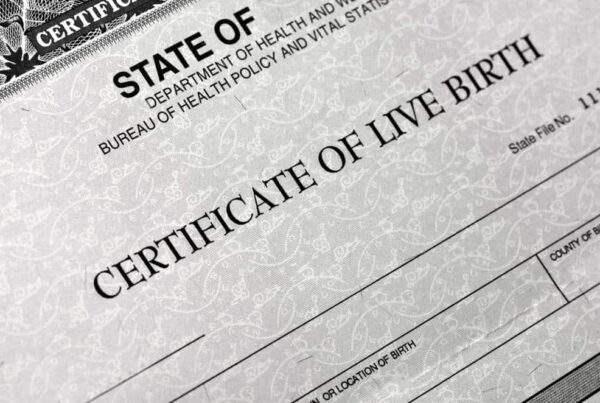
Over the last few decades, surrogacy has become a common way of starting a family for couples incapable of conceiving a child on their own. However, there is still a high level of controversy and stigma surrounding this procedure.
Unfortunately, a lot of the stigma stems from lack of knowledge. Some couples are afraid that they won’t have enough legal rights and that the state won’t allow them to keep the baby. Intended parents can overcome this paralyzing fear by learning more about the topic. Nonetheless, the legal process is still hard to navigate. There are some steps that intended parents need to fulfill in order to keep the baby.
Unfortunately, parental rights in surrogacy aren’t guaranteed in all states. Thankfully, that’s gradually becoming a thing of the past. The state surrogacy laws keep changing because updates are necessary to accommodate the way modern families are evolving. Namely, families of choice are growing in numbers. More couples than ever before are turning to surrogacy and other “alternative” ways of conceiving. Therefore, the traditional way of starting a family does not dominate the statistics in a way it used to.
The Common Question is – Who Are The Legal Parents?
Because there is no federal surrogacy law, intended parents often pose this question. There’s a lot of confusion surrounding the legal rights in surrogacy. Laws differ from state to state, and so does the legal process of surrogacy. Furthermore, some of the existing laws are outdated and name the woman who delivered the child as the mother. This could present a problem for intended parents, as it wouldn’t allow them to keep the baby.
There are a few legal steps intended parents and their legal representatives need to take to get around this problem. Intended parents and the surrogate mother need to sign orders that assign parentage either pre or post birth.
Pre-Birth Order
Signing legal documents and relinquishing legal rights to a child before birth is a straightforward way to establish parentage in surrogacy. However, pre-birth orders often cause confusion.
A pre-birth order assigns the legal rights to intended parents and allows them to keep the baby. However, those legal rights are established only after the child’s birth. Nonetheless, they do give intended parents the legal rights they need.
Pre-birth orders are not only a great way for intended parents to gain legal rights, but they also help ease their worries. Namely, some intended parents fear that the surrogate mother will change her mind and refuse to give up the baby after the birth. With a pre-birth order, that scenario is impossible.
The order is a way to ensure that the hospital and the Department of Vital Records put the names of intended parents on the birth certificate after the delivery. That gives them full legal rights after birth. Furthermore, it gives them the right to make medical decisions for the child.
A common follow-up question about pre-birth orders is – when can intended parents start the paperwork? Most commonly, the parties involved sign the papers by the fifth month of the gestational surrogate pregnancy.
However, states that do allow pre-birth orders allow intended parents to start the paperwork as early as the fourth month of gestation. In the days following the birth, the intended parents might need to show up in court and confirm their rights assigned by the pre-birth order. This court hearing is also another opportunity for the surrogate mother to relinquish her rights.
Post-Birth Order
Some states do not allow pre-birth orders. In terms of surrogacy, these states are the “post-birth” states. By state law, intended parents aren’t allowed to file papers that will ensure their legal rights to keep the baby until after the baby is born. Unfortunately, these states make surrogacy a more difficult process. However, not an impossible one.
In post-birth states, intended parents need to appear in court after the birth. The court hearings are often a formality. A court hearing will usually go seamlessly if all parties agree over the parentage of the baby.
Can The Surrogate Mother Keep The Baby?
Overall, the answer to this question is no. In pre-birth states, the surrogate mother is legally required to hand the baby over to the intended parents. That’s why it’s important that intended parents protect themselves with legal actions and documentation.
However, the fact of the matter is that the surrogate mother has to consent to relinquish legal rights again after birth. With a correct legal procedure, intended parents have all the legal rights after the birth. Therefore, they can keep the baby and the court hearing is just a formality as part of the surrogacy process.



